A useful LaTeX editor on the Linux platform
Introduction: Once you get over the learning curve of LaTeX, nothing beats LaTeX. Here are the best LaTeX editors for Linux and other platforms.
LaTeX[1] is a document production system. Unlike a plain text editor, in a LaTeX editor you can't just write plain text, you also have to use some LaTeX commands in order to organize the content of the document.
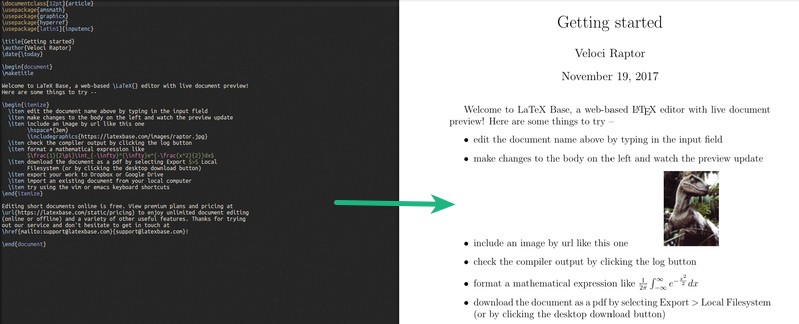
LaTeX editor is generally used for publishing scientific research documents or books for academic purposes. Most importantly, it can bring you convenience when you need to process documents containing many complex mathematical symbols. Sure, using a LaTeX editor is fun, but it's not always useful unless you have some special needs for the document you're writing.
Well, as I mentioned before, using a LaTeX editor means you have specific needs. In order to mess around with the LaTeX editor, you don't need to have a geek mind. But for those using regular text editors, it's not a very efficient solution.
If you are looking for a tool to carefully create a document, and you have no interest in spending time formatting text, then the LaTeX editor may be just the tool you are looking for. In the LaTeX editor, you only need to specify the type of document, and it will set the font type and size of the document for you accordingly. It is for this reason that it is no wonder that it is considered one of the best open source tools for writers[2].
But please be aware: The LaTeX editor is not an automated tool. You must first learn some LaTeX commands to enable it to accurately process text formatting.
Let me explain in advance that the following list does not have a clear order. The editor with serial number 3 is not necessarily better than the editor with serial number 7.
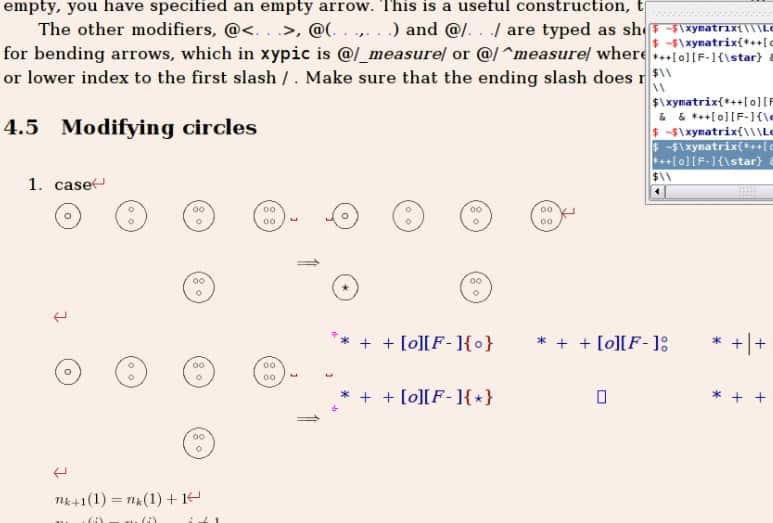
LyX[3] is an open source LaTeX editor, which means it is one of the best document processing engines available on the Internet. LyX helps you focus on your article and forget about formatting words, which is what every LaTeX editor should do. LyX allows you to manage different document contents based on different documents. Once you install it, you can control many things in your document, such as margins, headers, footers, whitespace, indents, tables, and more.
If you are busy writing carefully crafted scientific documents, research papers, or similar documents, you will be happy to experience LyX's equation editor, which is one of its features. LyX also includes a series of tutorials to get started, making getting started less hassle-free.
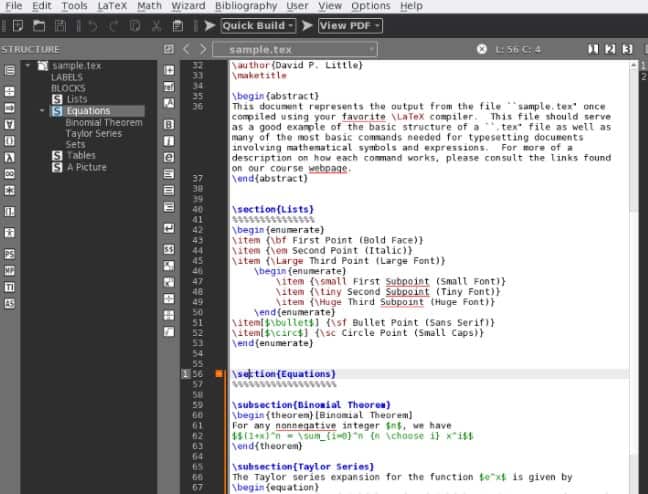
Texmaker[4] is considered one of the best LaTeX editors for the GNOME desktop environment. It presents a very nice user interface, resulting in a great user experience. It is also known as one of the most practical LaTeX editors. If you frequently convert PDFs, you will find that TeXmaker is faster than other editors. As you write, you can also preview how your document will ultimately look. At the same time, you can also observe that you can easily find the required symbols.
Texmaker also provides an extended shortcut key support. Why wouldn't you try using it?
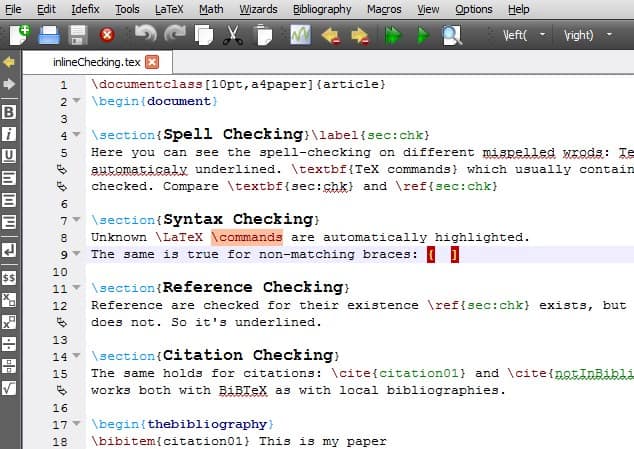
If you want a LaTeX editor that can provide you with quite good customization functions and an easy-to-use interface, then TeXstudio[5] is the one Perfect choice. Its UI is indeed simple, but not crude. TeXstudio comes with syntax highlighting, an integrated reader that allows you to check references, and other auxiliary tools.
It also supports some cool features, such as auto-completion, link overlay, bookmarks, multi-cursors, etc., which makes writing LaTeX documents easier than before.
TeXstudio is actively maintained, making it a compelling choice for novice or advanced writers.
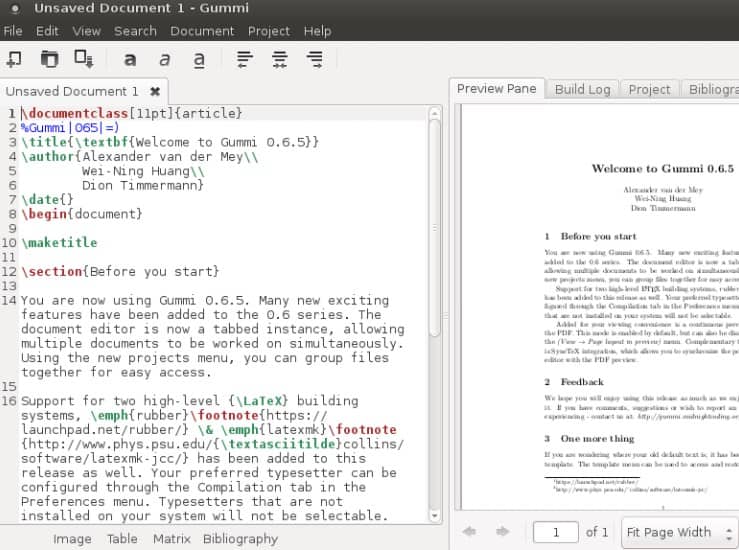
Gummi[6] is a very simple LaTeX editor based on the GTK toolbox. Of course, you won’t find many fancy options in this editor, but if you just want to be able to start writing right away, then Gummi is our recommendation for you. It supports outputting documents to PDF format, supports syntax highlighting, and helps you perform some basic error checking. Although it is no longer actively maintained on GitHub, it still works fine.
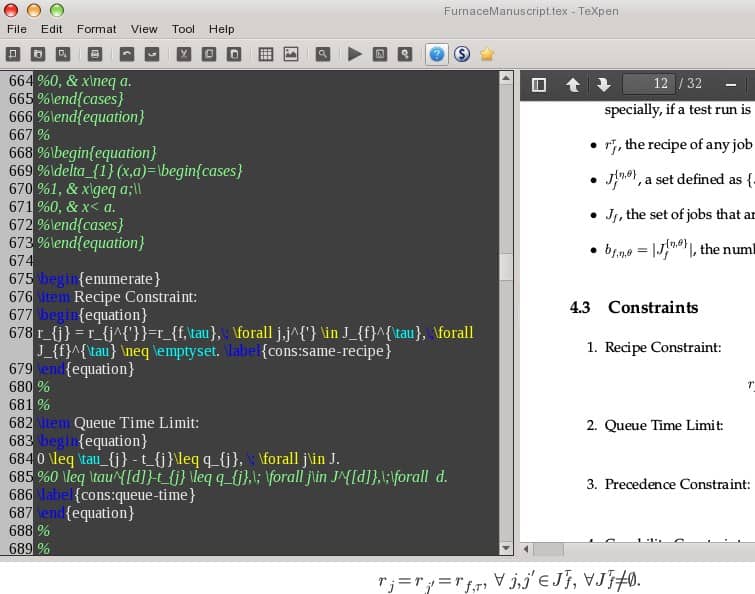
TeXpen[7] is another simple LaTeX editor. It provides you with auto-completion functionality. But the user interface may not impress you. If you don't care about the user interface and want a super easy LaTeX editor, TeXpen will meet your needs. At the same time, TeXpen can also correct or improve the English grammar and expressions used in the document for you.
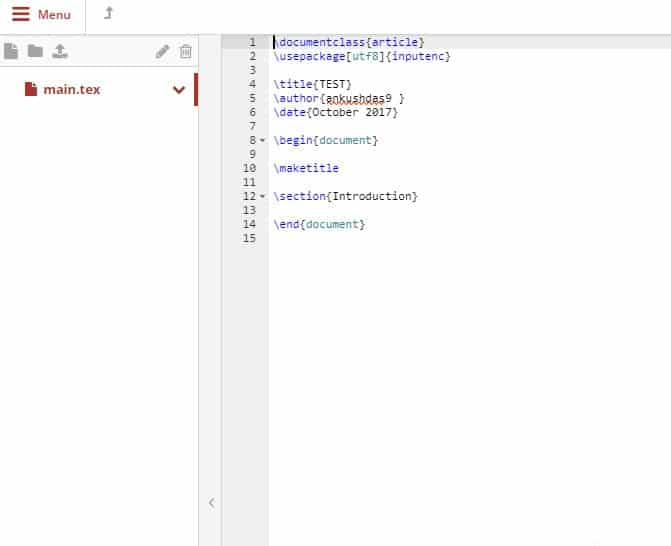
ShareLaTeX[8] is an online LaTeX editor. If you want to collaborate on a document with someone or a group of friends, then this is what you need.
It offers a free plan and several paid plans. Even students from Harvard and Oxford universities use it for personal projects. Its free plan also allows you to add a collaborator.
Its paid plan allows you to synchronize with GitHub and Dropbox, and can record the complete document modification history. You can select multiple collaborators for each of your projects. For students, it also offers separate billing plans.
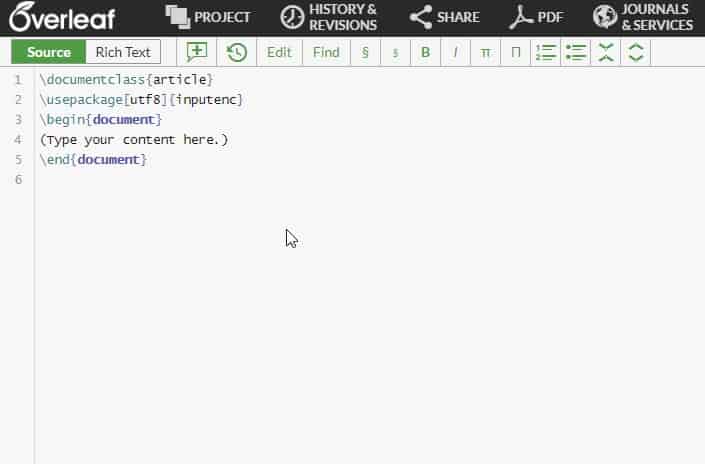
Overleaf[9] is another online LaTeX editor. It is similar to ShareLaTeX in that it offers different billing plans for experts and students. It also offers a free plan with which you can sync with GitHub, check your revision history, or add multiple collaborators.
In each project, it has a limit on the number of files. So in most cases this won't be an inconvenience for you if you are very familiar with LaTeX files.
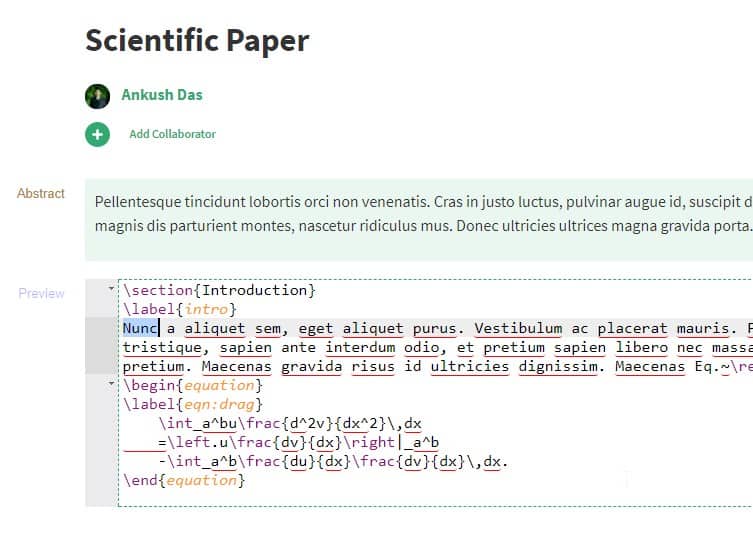
Authorea[10] is a wonderful online LaTeX editor. Of course, if you take the price into consideration, it might not be the best one. For the free plan, it has a 100 MB data upload limit and the ability to create only one private document at a time. The paid plan, on the other hand, offers more perks, but if you consider the price, it might not be the cheapest. The only reason you should choose Authorea should be because of its user interface. If you love using a tool that offers an impressive user interface, don't miss it.
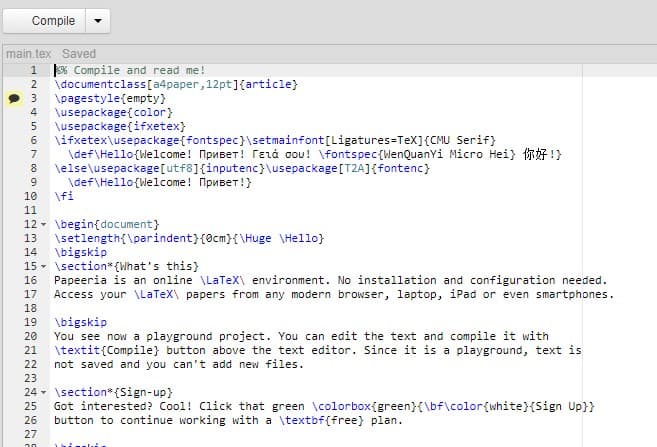
Papeeria[11] is the cheapest LaTeX online editor you can find on the Internet, considering that it is as reliable as other editors. If you want to use it for free, you cannot use it for private projects. However, if you prefer public projects, it allows you to create an unlimited number of projects and add an unlimited number of collaborators. It features a very simple paint builder and uses Git synchronization at no additional cost. If you prefer the paid plan, it gives you the ability to create 10 private projects.
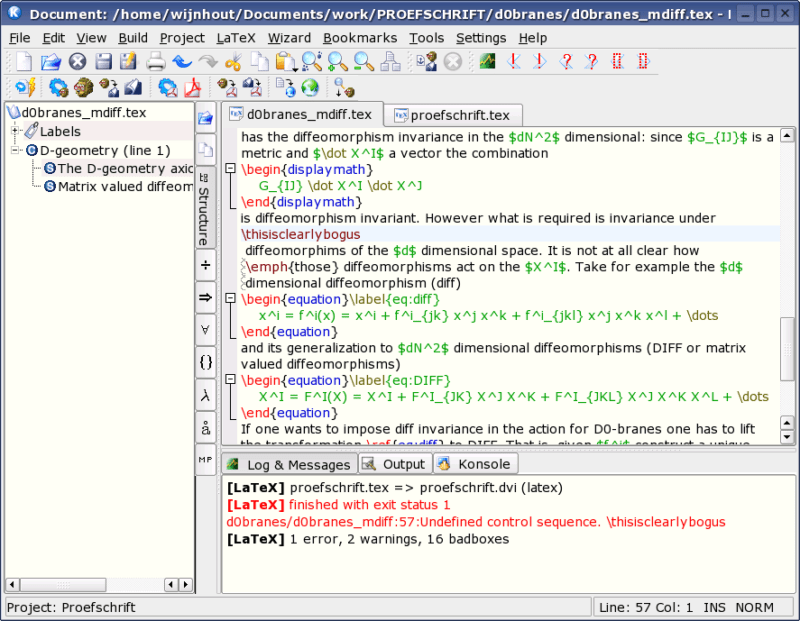
Finishing last on our list of the best LaTeX editors is the Kile[12] editor. Some friends highly praise Kile, largely because of the features it provides.
Kile is not just an editor, it is an IDE tool similar to Eclipse, providing a complete environment for documents and projects. In addition to quick compilation and preview functions, you can also use functions such as automatic completion of commands, inserting references, and organizing documents according to chapters. You really should use Kile to see its potential.
Kile is available on both Linux and Windows platforms.
So the above are our recommended LaTeX editors that you can use in Ubuntu or other Linux distributions.
The above is the detailed content of A useful LaTeX editor on the Linux platform. For more information, please follow other related articles on the PHP Chinese website!

Hot AI Tools

Undresser.AI Undress
AI-powered app for creating realistic nude photos

AI Clothes Remover
Online AI tool for removing clothes from photos.

Undress AI Tool
Undress images for free

Clothoff.io
AI clothes remover

Video Face Swap
Swap faces in any video effortlessly with our completely free AI face swap tool!

Hot Article

Hot Tools

Notepad++7.3.1
Easy-to-use and free code editor

SublimeText3 Chinese version
Chinese version, very easy to use

Zend Studio 13.0.1
Powerful PHP integrated development environment

Dreamweaver CS6
Visual web development tools

SublimeText3 Mac version
God-level code editing software (SublimeText3)

Hot Topics
 What computer configuration is required for vscode
Apr 15, 2025 pm 09:48 PM
What computer configuration is required for vscode
Apr 15, 2025 pm 09:48 PM
VS Code system requirements: Operating system: Windows 10 and above, macOS 10.12 and above, Linux distribution processor: minimum 1.6 GHz, recommended 2.0 GHz and above memory: minimum 512 MB, recommended 4 GB and above storage space: minimum 250 MB, recommended 1 GB and above other requirements: stable network connection, Xorg/Wayland (Linux)
 vscode cannot install extension
Apr 15, 2025 pm 07:18 PM
vscode cannot install extension
Apr 15, 2025 pm 07:18 PM
The reasons for the installation of VS Code extensions may be: network instability, insufficient permissions, system compatibility issues, VS Code version is too old, antivirus software or firewall interference. By checking network connections, permissions, log files, updating VS Code, disabling security software, and restarting VS Code or computers, you can gradually troubleshoot and resolve issues.
 How to run java code in notepad
Apr 16, 2025 pm 07:39 PM
How to run java code in notepad
Apr 16, 2025 pm 07:39 PM
Although Notepad cannot run Java code directly, it can be achieved by using other tools: using the command line compiler (javac) to generate a bytecode file (filename.class). Use the Java interpreter (java) to interpret bytecode, execute the code, and output the result.
 What is vscode What is vscode for?
Apr 15, 2025 pm 06:45 PM
What is vscode What is vscode for?
Apr 15, 2025 pm 06:45 PM
VS Code is the full name Visual Studio Code, which is a free and open source cross-platform code editor and development environment developed by Microsoft. It supports a wide range of programming languages and provides syntax highlighting, code automatic completion, code snippets and smart prompts to improve development efficiency. Through a rich extension ecosystem, users can add extensions to specific needs and languages, such as debuggers, code formatting tools, and Git integrations. VS Code also includes an intuitive debugger that helps quickly find and resolve bugs in your code.
 Can vscode be used for mac
Apr 15, 2025 pm 07:36 PM
Can vscode be used for mac
Apr 15, 2025 pm 07:36 PM
VS Code is available on Mac. It has powerful extensions, Git integration, terminal and debugger, and also offers a wealth of setup options. However, for particularly large projects or highly professional development, VS Code may have performance or functional limitations.
 How to use VSCode
Apr 15, 2025 pm 11:21 PM
How to use VSCode
Apr 15, 2025 pm 11:21 PM
Visual Studio Code (VSCode) is a cross-platform, open source and free code editor developed by Microsoft. It is known for its lightweight, scalability and support for a wide range of programming languages. To install VSCode, please visit the official website to download and run the installer. When using VSCode, you can create new projects, edit code, debug code, navigate projects, expand VSCode, and manage settings. VSCode is available for Windows, macOS, and Linux, supports multiple programming languages and provides various extensions through Marketplace. Its advantages include lightweight, scalability, extensive language support, rich features and version
 What is the main purpose of Linux?
Apr 16, 2025 am 12:19 AM
What is the main purpose of Linux?
Apr 16, 2025 am 12:19 AM
The main uses of Linux include: 1. Server operating system, 2. Embedded system, 3. Desktop operating system, 4. Development and testing environment. Linux excels in these areas, providing stability, security and efficient development tools.
 How to check the warehouse address of git
Apr 17, 2025 pm 01:54 PM
How to check the warehouse address of git
Apr 17, 2025 pm 01:54 PM
To view the Git repository address, perform the following steps: 1. Open the command line and navigate to the repository directory; 2. Run the "git remote -v" command; 3. View the repository name in the output and its corresponding address.






